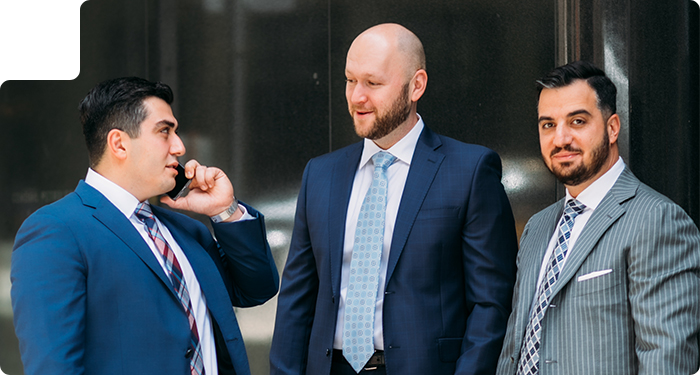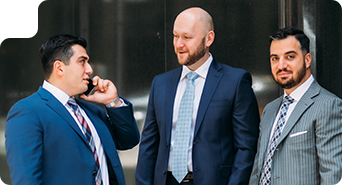The novel coronavirus or COVID-19 is practically everywhere, not only in terms of how quickly it is spreading around the globe but also regarding its prevalence on the internet. If you go to any news site right now, then you will see a long list of coronavirus-related stories on the homepage. Even going to Google will present you with helpful pandemic safety tips from the World Health Organization (WHO).
If you’re like so many other American workers, then you’re probably starting to get a little worried about encountering coronavirus in your workplace. No matter how safe you might be – washing your hands often, never touching your face, etc. – you can’t control the hygiene and precautions followed by your coworkers. What happens if one of your coworkers shows up while infected by and contagious with the coronavirus and you come down with its symptoms later? Will you be able to get workers’ compensation benefits or other unique types of financial support until you recover?
How is the Government Taking Action?
A factor to COVID-19’s rapid and largely unpredictable spread is the fact that it is mild in most cases, especially when the relatively young contract it. Asymptomatic carriers may go through their day-to-day routines, unknowing that they are exposing others to the virus, others who might be in serious danger if they experience severe symptoms. Multiple government health and safety organizations have sprung into action to try to help contain and slow the virus’s spread in the workplace, each using their areas of expertise to get reliable information to American workers.
A few government agencies and what they have done are:
- Centers for Disease Control and Prevention (CDC): Working from home whenever possible is the cornerstone of the CDC’s advice for employees and employers alike. This approach does not, however, provide a clear solution for industries that do not have a work-from-home option.
- California Department of Industrial Relations (CaDIR): An extensive catalog of workplace safety guidelines has been released by CaDIR with a focus on industries most exposed to coronavirus dangers, such as hospitals, nursing homes, and testing laboratories.
- Occupational Safety and Health Administration (OSHA): OSHA has also cataloged helpful information about the spread of coronavirus in the workplace, such as how to prevent it. Interestingly, OSHA also made a point to say that the Occupational Safety and Health Act of 1970 makes it illegal for employers to retaliate against a worker who raises concerns about the spread of coronavirus in their workplace.
- Food and Drug Administration (FDA): Food production centers, food processing facilities, and restaurants and other eateries are struggling to find ways to continue to prepare and serve food without endangering themselves and their guests to COVID-19 food contamination. The FDA released an extensive COVID-19 FAQ for employers and workers in the food industry.
President Trump has also declared the spread of a coronavirus as a national emergency, which opened up additional resources to research the virus and treat patients. While the federal and state-level governments can make efforts to defeat the coronavirus, individuals need to make deliberate attempts to help, too. For many people, this means practicing social distancing and calling out sick or working from home when they can.
Coworker Accountability to Stay Home When Sick
As mentioned, not all workers have the option to work from home, either due to their industry or their financial situation. Many others will also continue to come to work without realizing they are even contagious due to their case of COVID-19 only triggering mild symptoms. With this said, the likelihood of you eventually coming into close contact with a coworker who has the coronavirus is high.
Unfortunately, the prevalence of the novel coronavirus also works against you when you want to file for workers’ compensation benefits after contracting it. Workers’ compensation is meant to financial benefits to an employee who has become ill or injured due to a preventable workplace accident or neglectful incident. If a coworker comes into your workplace unknowing that they have the coronavirus, can that be called a “preventable accident” or even an act of neglect? The answer is still very much up for debate with the United States only recently feeling the pressure of the virus.
Workers’ compensation insurance companies are almost certainly going to say that coronavirus exposure through a sick coworker is not something covered by their policies. They will probably try to argue that you got sick through exposure to someone outside of work, such as a family member or a stranger when you left your home to buy supplies.
This is where it becomes so important to work with an experienced workers’ compensation attorney. Proving the validity of your coronavirus workers’ compensation claim will hinge upon proving where you contracted the virus. If you can show that you have been careful to stay socially distant while following quarantine instructions, then your claim will be strengthened. Working in an “essential job” will also help show that you contracted the virus at work or “more likely than not” contracted it there. Your lawyer will play an instrumental role in proving the validity of your claim by linking your diagnosis to your work or workplace.
Potential Benefits for the “essential Job” Sector
Most “secure-in-place” orders that have been issued across the country from various municipalities – states, counties, and cities have had their own types of quarantine instructions – allow for businesses to stay open if they sell “essential” products and services. People who work in the “essential job” sector will be far more likely to get exposed to the coronavirus. As a result, they may have an increased chance to get workers’ compensation benefits through a filing that cites the virus as an “occupational illness.”
A few examples of industries that are deemed “essential” during the pandemic are:
- Healthcare: Doctors, nurses, pharmacists, and others from the healthcare industry are at the forefront of the fight to stop the coronavirus. Each time a healthcare or medical worker clocks in, they are willingly exposing themselves to a high risk of contracting COVID-19 from a sick patient or through laboratory experiments. Occupational illness claims are common for healthcare workers who see and treat the ill, so the onset of the coronavirus has not changed their workers’ compensation situation too much.
- Food service: Businesses that produce, distribute, and sell food are permitted to remain open during quarantines. However, customers are usually not allowed to dine within the premises but must order takeout instead. A quick interaction with someone who is sick with coronavirus could still be enough to contract it, though.
- Hospitality: Hotels, motels, and other hospitality businesses can stay open to allow people to self-isolate away from their homes. The workers in these industries may be regularly exposed to people with COVID-19, though. Some hotel cleaning crews may even be told to clean a guest’s room without ever being told that the guest stayed there while sick with the coronavirus, unfairly exposing that worker to the virus and putting them at risk of spreading it to others in their life, too.
- Gas stations: In order to purchase essential products and services during a quarantine, you will need gas in your vehicle, which is why gas stations are allowed to stay open. Gas station attendants could be exposed to the virus either through direct interactions with customers or while maintaining the gas station. For example, frequently cleaning gas pumps is a necessity to reduce customer exposure, but it also increases the worker’s exposure risk.
- Certain retail stores: A retail store can remain open to the public if it sells essential products. The most common example is a grocery store, but other retailers like home maintenance stores can also continue business operations like normal.
Workers in these essential industries should be able to file for workers’ compensation by claiming they were exposed to the illness as part of their expected job duties. It is also possible that hazard pay may become available to workers in the essential industries. Hazard pay is usually reserved for employees in inherently dangerous jobs, such as firefighters or police officers. When the coronavirus is still spreading, though, working in any public forum is arguably a health hazard.
California’s Workers’ Compensation Industrial Claim Rule
Although the full extent of harm caused by COVID-19 in the average patient is still relatively unknown, some studies are already suggesting that it can cause permanent health consequences in survivors. Several patients who have recovered from the obvious symptoms of coronavirus show signs of lung scarring caused by it. For the rest of their lives, they will have reduced breathing capability, and some may need lifelong treatment and monitoring depending on the severity of the lung tissue damage.
In California, certain workers’ compensation claims can be deemed “industrial” when a severe or lifelong injury or illness occurs at or due to work. Industrial claims will provide medical treatment coverage for the rest of the claimant’s life. Anyone who has contracted coronavirus while working will benefit from a full prognosis from their medical provider. If it is believed that they will experience some sort of permanent health consequence due to the coronavirus, then it needs to be factored into their workers’ compensation claim.
Disability Pay – Does It Apply?
Although it appears that receiving workers’ compensation for catching the coronavirus might be limited to only a few select industries, receiving disability pay is another question altogether. Disability pay is provided to people who can no longer continue to work in any gainful capacity due to a temporary or permanent disabling condition. Unlike workers’ compensation, disability benefits can be approved regardless of how, when, or why the claimant became disabled.
The worst symptoms of the coronavirus – high fever, breathing difficulties, and full-body weakness – could make it impossible for you to continue working in a regular capacity for several weeks. Even being diagnosed with COVID-19 could take you away from your occupation for weeks, forcing you into self-isolation at home but without any work-from-home options.
Some companies and insurance providers have taken the initiative to expand disability pay coverage to coronavirus patients with confirmed diagnoses. You should talk to your employer now about whether or not you can file for disability for a COVID-19 diagnosis. Even if you are not ill now, it is worth knowing if disability benefits will be available to you in the event that you do contract the virus.
For Further Questions, Call Levin & Nalbandyan, LLP
The laws and legal expectations surrounding workers and the coronavirus are a bit foggy right now as legislatures, employers, and insurance companies alike try to get organized after the pandemic overturned most industries. To get a clearer idea of your rights and options as a worker who is or may be exposed to the coronavirus in the workplace, you should work with an experienced attorney.
At Levin & Nalbandyan, LLP in Los Angeles, we are paying close attention to coronavirus news stories and legal updates as they develop, so we can be a knowledgeable, reliable team for our clients. Our law firm handles personal injury, employment law, and workers’ compensation law cases, which all may become a factor in a COVID-19 claim. From our unique position and background, we are well-suited to represent workers throughout Los Angeles in any developing cases.






